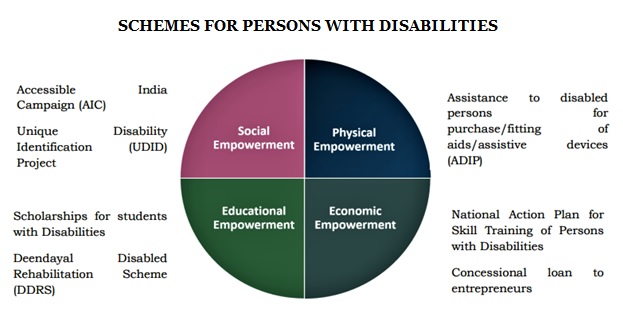7667766266
enquiry@shankarias.in
The Social Justice and Empowerment Ministry has invited public feedback on the new draft national policy on persons with disabilities (PwD).
Relief to persons with disabilities is a state subject by virtue of entry 9 of List II of the Constitution.

References